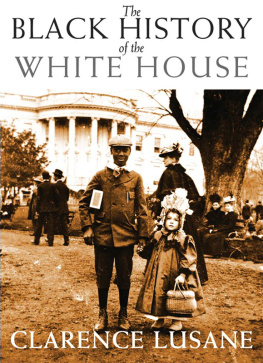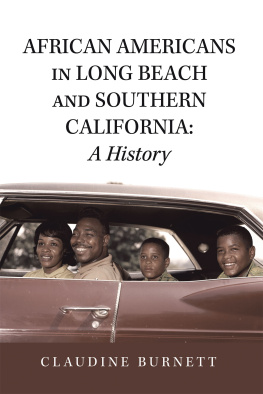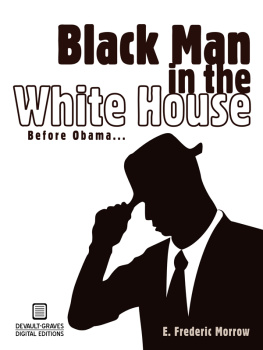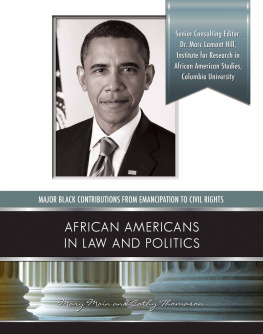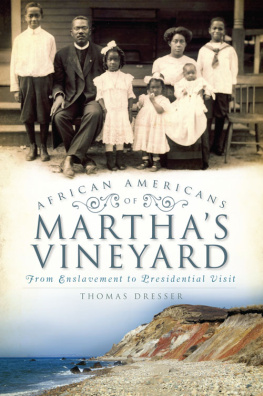FAMILY OF FREEDOM
ALSO BY KENNETH T. WALSH
Prisoners of the White House: The Isolation of Americas Presidents and the Crisis of Leadership
Feeding the Beast: The White House versus the Press
Ronald Reagan: Biography
Air Force One: A History of the Presidents and Their Planes
From Mount Vernon to Crawford: A History of the Presidents and Their Retreats
Family of Freedom
PRESIDENTS AND AFRICAN AMERICANS IN THE WHITE HOUSE
BY
KENNETH T. WALSH
First published 2014
by Paradigm Publishers
Published 2016
by Routledge
2 Park Square, Milton Park, Abingdon, Oxon OX14 4RN
711 Third Avenue, New York, NY 10017, USA
Routledge is an imprint of the Taylor & Francis Group, an informa business
Copyright 2014, Taylor & Francis.
All rights reserved. No part of this book may be reprinted or reproduced or utilised in any form or by any electronic, mechanical, or other means, now known or hereafter invented, including photocopying and recording, or in any information storage or retrieval system, without permission in writing from the publishers.
Notice:
Product or corporate names may be trademarks or registered trademarks, and are used only for identification and explanation without intent to infringe.
Library of Congress Cataloging-in-Publication Data
Walsh, Kenneth T.
Family of freedom: presidents and African Americans in the White House /
Kenneth T. Walsh.
p. cm.
Includes bibliographical references and index.
ISBN 978-1-61205-000-3 (library ebook)
1. PresidentsRelations with African Americans. 2. PresidentsUnited States
Attitudes. 3. PresidentsUnited StatesBiography. 4. African Americans
Government relations. 5. African AmericansPolitics and government.
6. RacismPolitical aspectsUnited StatesHistory. 7. PresidentsUnited
StatesStaffHistory. I. Title.
E176.472.A34W35 2011
305.800973dc22 2010033695
Designed and Typeset by Straight Creek Bookmakers.
ISBN 13: 978-1-59451-833-1 (hbk)
ISBN 13: 978-1-59451-834-8 (pbk)
For Barclay
CONTENTS
On July 2, 1964, President Lyndon B. Johnson signed the Civil Rights Act, a landmark in Americas racial history and one of the most important signs of racial progress since the beginning of the Republic. For the past fifty years, Americans of goodwill have celebrated that moment, when the country granted African Americans and other groups fundamental rights they had been denied for so long by forbidding discrimination on the basis of race, religion, sex, or national origin.
The signing of the law was important in another way. It showed that a determined president in Washington allied with a determined leader at the grass roots could overcome enormous obstacles and accomplish great things. This was true in the case of Johnson, probably the best legislator ever elected to the White House, and the Rev. Martin Luther King Jr., the iconic leader of the American civil rights movement. Neither could have made the progress that was achieved without the other. They realized this, and privately coordinated their efforts, with the politician concentrating on Washingtons corridors of power and the tribune of the people mobilizing Americans in the streets. It was a very effective combination.
The story of the turbulent JohnsonKing relationship is recounted in this book, which is being reissued in paperback by Paradigm Publishers to commemorate the 50th anniversary of the Civil Rights Act of 1964. The occasion is a reminder of how much has changed in the United States on racial issues over the years. Not only has Barack Obama been elected the first African American president for two terms, but demographic research shows a fundamental social transformation is taking place. The Pew Research Center finds that by 2060, only 43 percent of the U.S. population will be white. In 1960, the U.S. population was 85 percent white. Rates of intermarriage and interracial births are increasing, suggesting that perhaps the racial divide is gradually being bridged, once and for all.
This book has two goalsto examine the racial attitudes and policies of Americas presidents and to explain how those attitudes and policies intertwined with the presidents day-to-day relationships with African Americans. In the process, I hope to illuminate not only the tortured history of how our leaders dealt with race but also the little-understood role that blacks have played in running the White House and, in many cases, helping the presidents to govern.
The narrative is rich with fascinating characters, such as Barack Obama, the first African American president, and other iconic chief executives such as George Washington, Thomas Jefferson, Abraham Lincoln, Franklin Roosevelt, and Ronald Reagan, and many African Americans who served or advised them, including Ona Judge, Sally Hemings, Frederick Douglass, Elizabeth Keckley, William Slade, Mary McLeod Bethune, Colin Powell, and Condoleezza Rice.
In assessing the history of the presidents and blacks in the White House, we can learn much about ourselves as Americans. Through that prism, we can trace our capacity for tolerance, our ability to deal with moral issues such as Americas original sin of slavery, and our 200-year-old struggle to heed what Lincoln so memorably called the better angels of our nature.
First and foremost, my heartfelt thanks go to my wife, Barclay Walsh. I wouldnt have written this book without her encouragement, and I couldnt have written it without her participation. She was my researcher and all-around sounding board, and her role was invaluable, as was her constant support. I dedicate this book to her.
I also want to thank President Barack Obama for his time, interest, and insight. My interview with him was an important part of this project.
And Id like to express my appreciation to former Presidents George W. Bush and George H. W. Bush, each of whom took the time to respond to my written questions via e-mail and provide thoughtful answers.
Former General Colin Powell was extremely helpful in talking to me about his experiences at the highest reaches of government.
Also providing invaluable help were David Axelrod, Ross Baker, Cornell Belcher, Doug Brinkley, Bob Dallek, Frank Donatelli, Matt Dowd, Ken Duberstein, Marlin Fitzwater, Al From, Bill Galston, Geoff Garin, Robert Gibbs, Ed Gillespie, Ed Goeas, Stan Greenberg, Valerie Jarrett, Frank Luntz, Kevin Madden, Thurgood Marshall Jr., Will Marshall, Mike McCurry, Bill McInturff, Mark Penn, Dan Pfeiffer, Roman Popadiuk, Michael Steele, Sean Walsh, Brad Woodhouse, Julian Zelizer, and the staffs at various presidential libraries. In addition, I found some sources particularly helpful, including many articles in the African American press over the years and the books of former White House staff members Lillian Rogers Parks, Elizabeth Keckley, and Preston Bruce.
Jillian Manus, my agent, was a believer in this project from the beginning.
And thanks to the creative team at Paradigm Publishers, especially Jennifer Knerr, Laura Esterman, Sharon Daugherty, and Jessica Priest.
I hope this book illuminates a key part of American history that has been neglected for too long, the close relationships between our presidents and the African Americans who have been an integral part of the White House from the beginning.
Kenneth T. Walsh
Bethesda, Maryland



